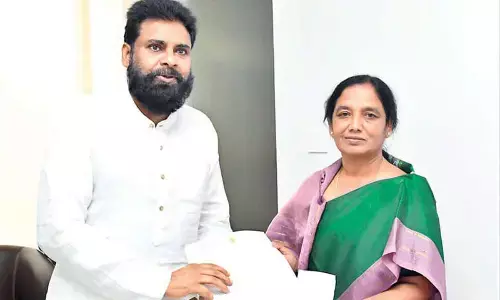Life expectancy in India up

While building a nestegg is critical to a hassle-free retired life, investors need to adhere to simple but intelligent
 With better food supply and nutrition, healthier lifestyle, better hygiene and, most importantly, advances in healthcare, Indians now live longer - life expectancy has gone up from 31 years in 1947 to 64 years in 2005.
With better food supply and nutrition, healthier lifestyle, better hygiene and, most importantly, advances in healthcare, Indians now live longer - life expectancy has gone up from 31 years in 1947 to 64 years in 2005.
And according to the World Population Prospects 2012 published by the United Nations, the share of people aged 65 years and above in the country is forecast to increase from 5.1 percent in 2010 to 12.7 percent in 2050, while the average life expectancy is projected to increase from around 65 years in 2010 to 73 years in 2050.
However, longevity is a double-edged sword considering rising medical costs, mounting inflationary pressures and rapidly changing lifestyles. Nonetheless, a longer lifespan is a blessing and the best way to make the most of this piece of good fortune is to plan for it.
Paradoxically, however, Indians do not seem to be keen on planning for the autumn of their lives. A recent study by Max Life Insurance along with leading research firm Nielsen on "Retirement Usage & Attitude" covering 1,091 male respondents in the 31-50 bracket across the country revealed that a mere 28 percent had started planning for retirement, with a majority investing in life insurance policies.
The average age of retirement in India is around 59 years though the survey revealed that 24 percent of the younger crop of working professionals hoped to retire before 55, implying that this group would need to have a large retirement corpus that could provide financial security for at least another 20 years.
Still, less than 28 percent of the current working population has begun to plan for its retirement. The rest believe they can start investing for retirement in their late 30s and still accumulate enough wealth for an independent, peaceful and comfortable retired life; in fact 10 percent of them believe they will have greater financial independence during their sunset years.
Only one percent of the respondents agreed that their retired years could imply financial struggle. Ironically, even though 75 percent agreed that their routine expenses would increase post-retirement, the majority did not have a plan to counter the rise in expenditure! Indeed, metadata suggests that India's salaried class is by and large unprepared for retirement.
Wake up and smell the coffee
Surprisingly, a majority of Indians remain detached from the reality of an impending financial crunch. Half the fraction that claims to have invested for its retirement concedes to ad hoc or convenience-based planning, saving only when they have additional money, without the guidance of a professional financial adviser.
As many as 63 percent of investors refuse to review their retirement needs before retirement, while a majority in non-metro cities ignored inflationary effects while building a retirement corpus. The Max Life Insurance and Nielsen study suggests that 48 percent of the members in the overall investor group were oblivious to rising medical costs. Further, more than 50 percent expected to live with their children during their retired years despite belonging to nuclear set-ups themselves today.
Incumbents need to realize that it is easy to save for retirement during the early stages of one's career when there is no pressure to support a family and minimal health expenses. Deferring retirement planning implies a "cost of delay" - the greater the delay, the higher the costs. Even in our survey, 65 percent of the retirement investors were of the opinion that they should have started earlier and at least a third expected to face financial uncertainty after they had retired.
 Healthy, Wealthy & Wise
Healthy, Wealthy & WiseWhile building a nestegg is critical to a hassle-free retired life, investors need to adhere to simple but intelligent investment techniques during their working years. For instance, investing in a health insurance policy that covers the policy-holder until 70-75 years of age is a smart move to make when you are young and healthy as it becomes increasingly difficult to get adequate coverage with passing years and deteriorating health.
Likewise, it is sensible to borrow for children's education and save for one's retirement. In the survey, 73 percent of the respondents considered their children's education a greater priority than saving for their own retirement without realising that while there are numerous avenues for educational loans, there are limited options for their own financial security after retirement. Besides, an educational loan inculcates a sense of financial discipline among the younger generation and prompts them to focus on savings early in life.
Another smart tactic is to invest in a life insurance pension plan that guarantees monthly returns. Life insurance by itself is an appealing option for many investors because of the perceived safety, guaranteed high returns and tax breaks available. Investment in a plan that guarantees monthly returns ensures peace of mind for the minimum monthly expenditure anticipated at the time of retirement. However, only four percent of the respondents in the survey had invested in such plans.
Retirement Investment is a Matter of Choice, Not Chance
Hoping for a comfortable life after retirement will not help - working towards it will. Plan your retirement under the guidance of a qualified professional who will help you build a balanced portfolio while minimising risk yet safeguarding your interests and ensuring guaranteed, high returns. It is never too early to plan for your retirement - just ensure you are not too late!
Next Story









